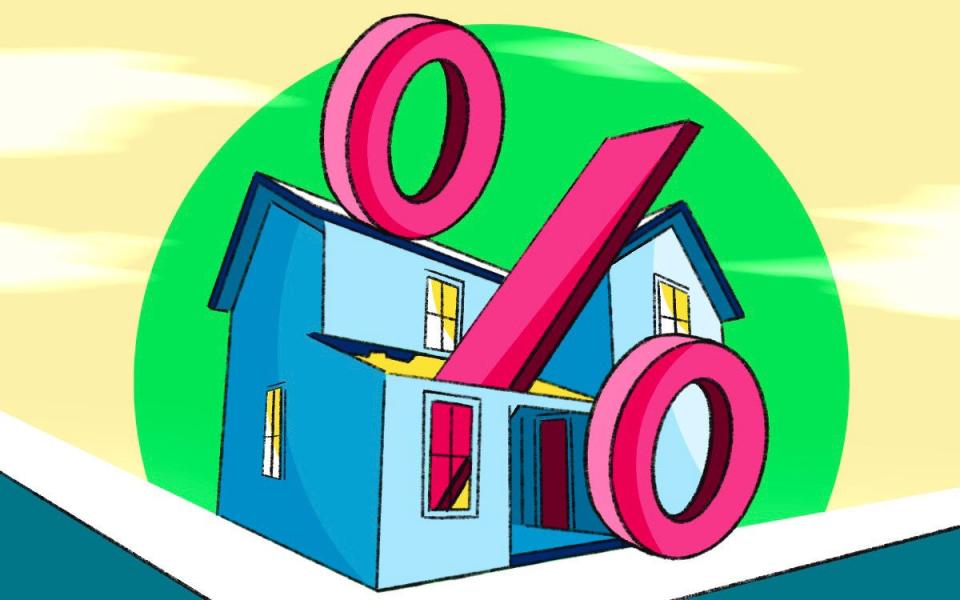Homeowners and landlords ditch mortgages in gamble it saves them thousands

Homeowners are paying thousands of pounds in penalties to end their current mortgage and lock in a new deal before interest rates rise even further.
Fixed mortgage rates have risen for eight months in a row and borrowers have raced to get ahead of more price increases this year. Yorkshire Building Society has recorded an 88pc rise in the value of “early repayment charges” paid by customers so far this year, compared with the same period in 2020.
The average outstanding fixed-rate mortgage in the UK is £161,774, so a borrower exiting a typical five-year deal 13 months early would pay £3,235 in fees. Most lenders charge exit fees as a percentage of the outstanding balance left on a mortgage, typically on a sliding scale of between 5pc and 1pc depending on how many years remain on the fixed term.
Ben Merritt of Yorkshire Building Society said he expected borrowers to pay exit penalties in large numbers this year, as rates rise to levels not seen in a decade.
Mr Merritt said: “It’s no surprise that in such a rising rate environment we’ve seen more borrowers consider a new deal before their current one has ended.
“With rates seemingly only heading in one direction and forecasts for this trend to continue, I suspect we’ll continue to see similar activity throughout the rest of the year at least.”
Rates are rising rapidly, forcing many homeowners into switching loans before they rise further. The average two-year deal has risen by almost 1 percentage point this year, at 3.25pc – the highest since 2014, according to analyst Moneyfacts. Meanwhile the average five-year fixed-rate has risen to heights not seen in seven years, at 3.37pc.
Similar rate increases in the buy-to-let sector have also pushed landlords to pay thousands of pounds in exit fees. The average two-year fixed rate for landlords is now 3.89pc, compared with 2.96pc in June last year and the average five-year rate has risen from 3.31pc to 4.05pc.
Angus Stewart, of broker Property Master, said: “Even before last week’s Bank Rate rise the typical landlord was paying up to £133 per month more for a mortgage.
“With more significant rate rises on the horizon, for some landlords it may well be worth paying an early redemption fee now to exit their current fixed rate if it is already near the end and lock in a deal before rates go up again.”
However despite rising interest rates, paying early repayment charges can sometimes leave borrowers out of pocket. Mr Merritt said: “It’s important for homeowners to factor in early repayment charges alongside any new product fees when considering how to get the best value for money.”
Reader Service: Equity release can help you to pay off your mortgage. Calculate how much cash you can release with a free equity release calculator.

 Yahoo Finance
Yahoo Finance 